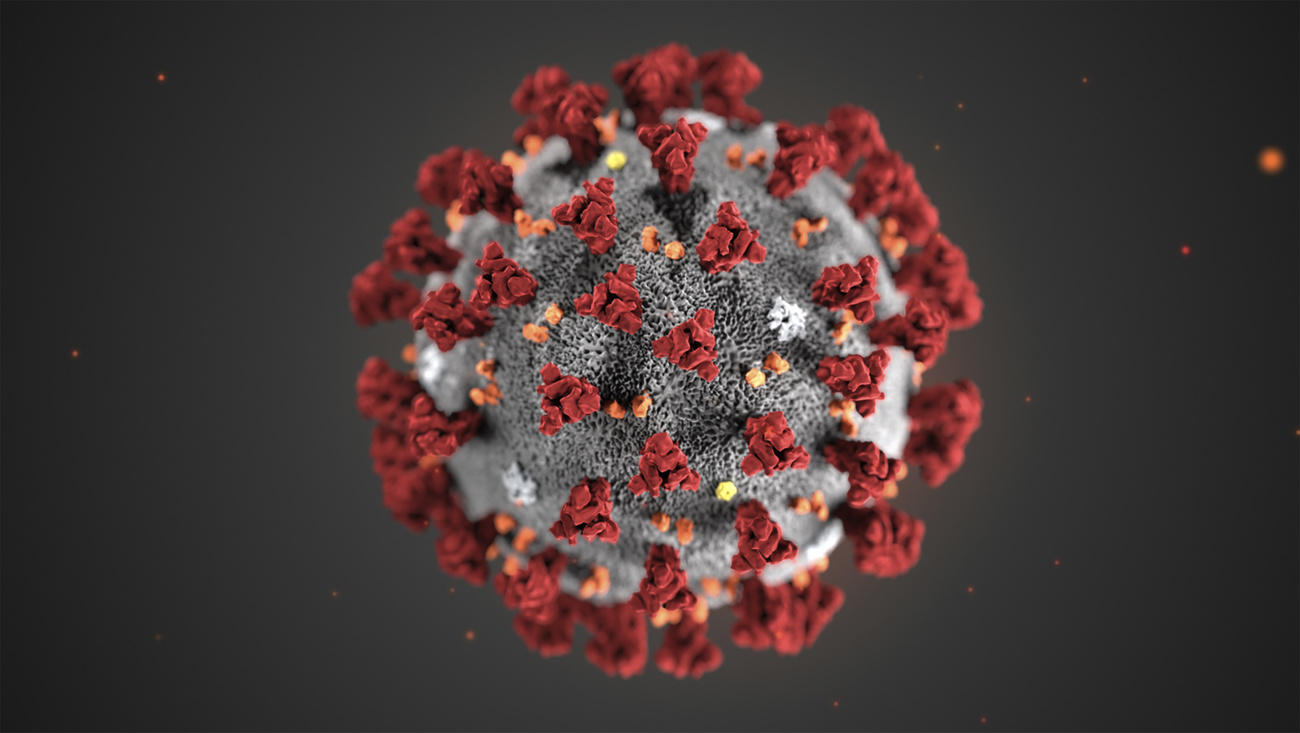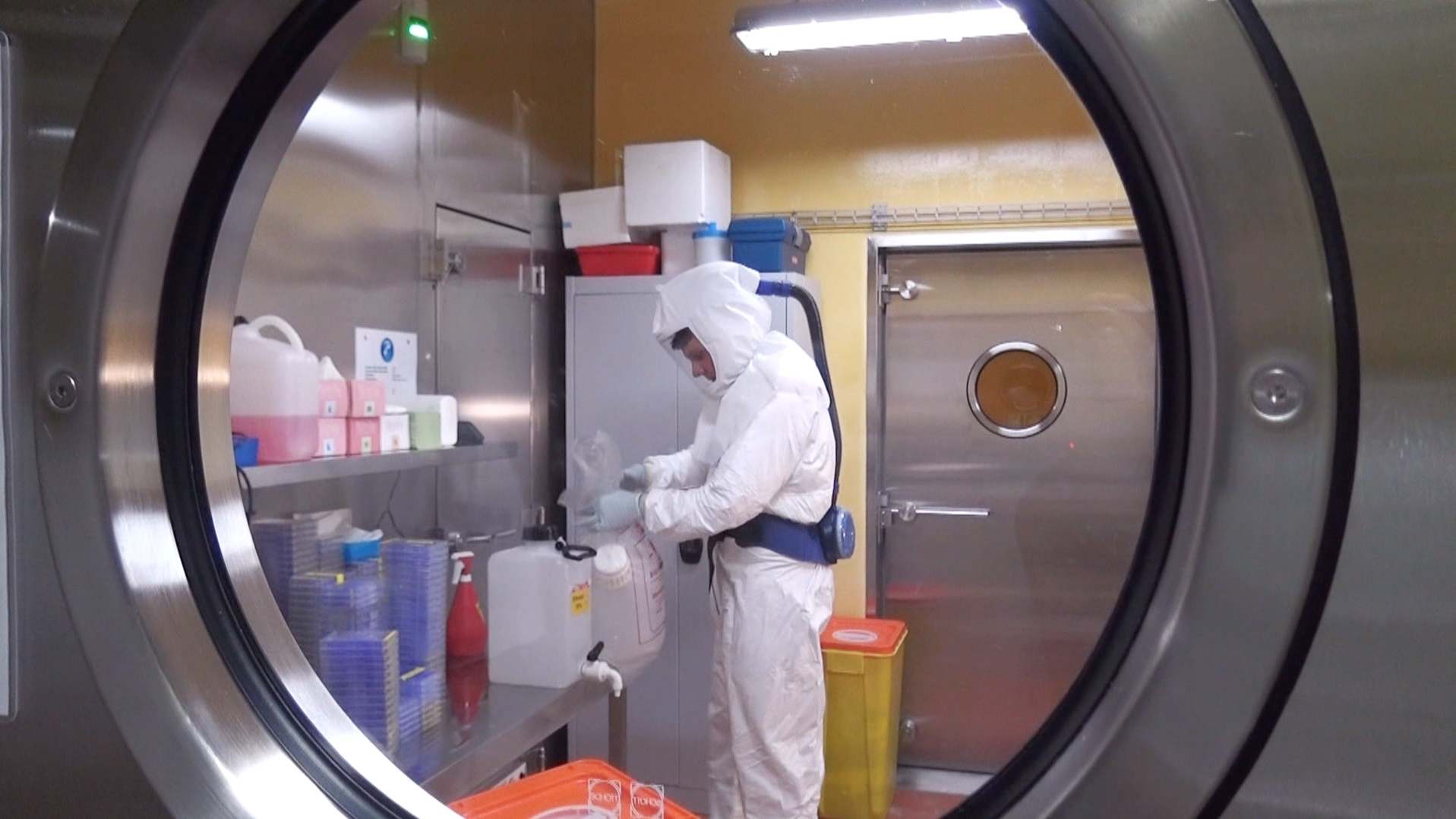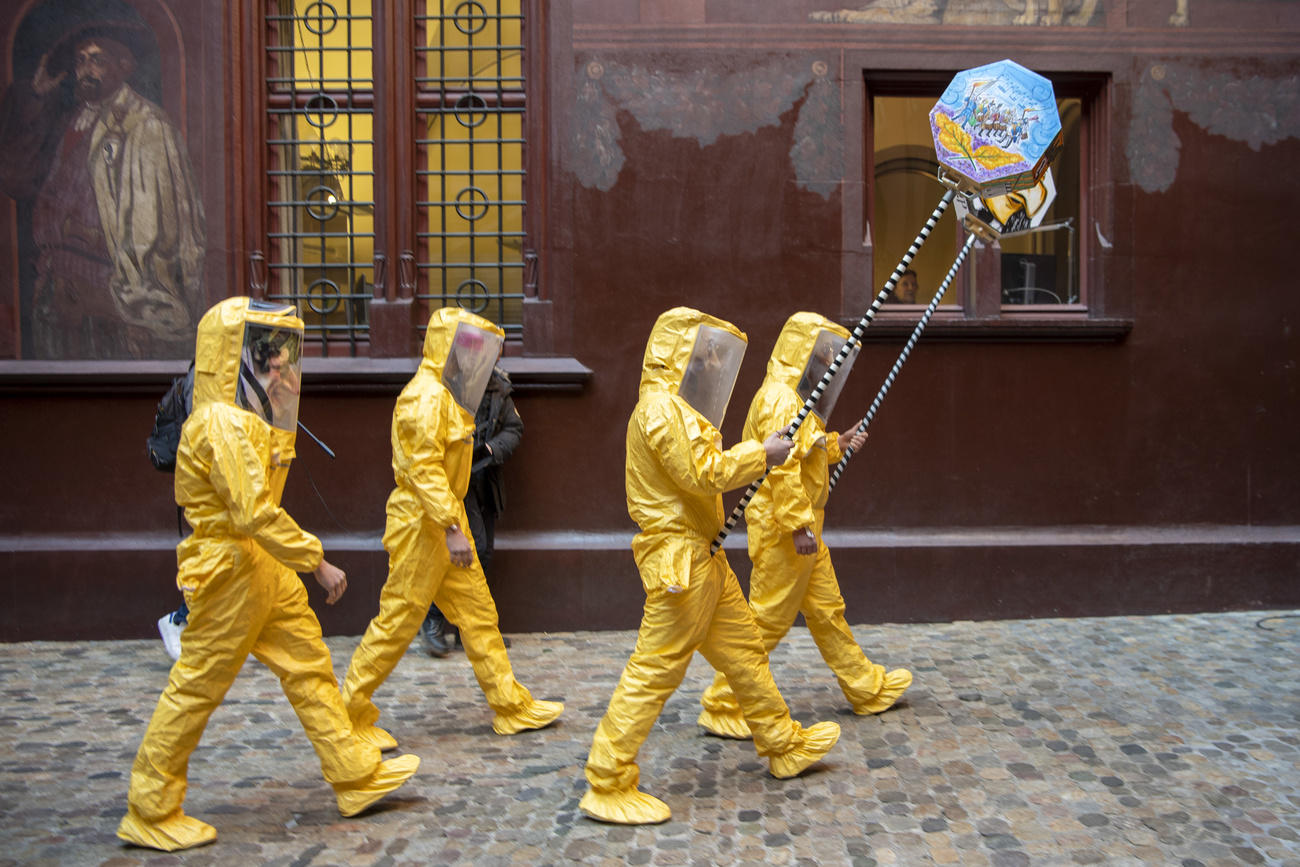
Bern scientists claim coronavirus breakthrough

Researchers at the University of Bern have perfected a technique to produce synthetic clones of the new coronavirus strain much faster.
The method should allow researchers to deactivate individual genes of the Covid-19 virus and to study the effects. This should enable scientists to identify the genes needed to replicate the virus and which would be a promising target for drugs, Volker Thiel of the university virology and immunology laboratory told Swiss public television, SRF, on Monday evening.
Thiel added that the team were receiving numerous requests for virus clones.
His team had received samples of the first people infected by the new coronavirus in Germany in early February. The samples are currently being analysed at a laboratory in Mittelhäusern, canton Bern, one of the few facilities in the world able to carry out such research.

More
A Swiss lab made the first synthetic clone of SARS-CoV-2
Dubochet’s work
The work of another Swiss researcher, Nobel Prize winner Jacques Dubochet, is also closely tied to ongoing investigations into the virus, as revealed by the journal ScienceExternal link.
Dubochet’s research developing cryo-electron microscopyExternal link has enabled a team from the University of Texas to quickly identify a key protein in Covid-19, a crucial step in the search for a vaccine.
Up to now, “the main method for determining molecular structure has been X-ray diffraction. It takes an incredible amount of time, years,” the Vaudois explained on Monday evening to Swiss public television, RTS. With cryo-electron microscopy, however, “you just need the very pure protein… it goes into the thin layer and that’s enough”.
According to RTS, this method makes it possible to study biological samples by freezing them.
The new coronavirus broke out in Wuhan, China, late last year and has since infected more than 89,000 people, mostly in China. However, it now appears to be spreading much more rapidly outside China than within. The global death toll exceeded 3,000, with the virus spreading to more than 60 countries. Outside China, there are now more than 8,700 infected and over 125 deaths.
Scientists say much remains unknown about the virus, which can lead to pneumonia, and a vaccine could take up to 18 months to develop.

More
Coronavirus cases are spreading in Switzerland

In compliance with the JTI standards
More: SWI swissinfo.ch certified by the Journalism Trust Initiative

























You can find an overview of ongoing debates with our journalists here . Please join us!
If you want to start a conversation about a topic raised in this article or want to report factual errors, email us at english@swissinfo.ch.